African Jesuit AIDS Network (AJAN) in collaboration with Catholic Prisons Chaplaincy (Coast region) recently conducted a comprehensive five-day Training of Trainers (ToT) program for chaplains and catechists from the Coast Region. The AHAPPY (AJAN HIV and AIDS Prevention Program for Youth) training, took place from October 14th to 18th, 2024, at Tumaini Pastoral Centre, Consolata Catholic Parish, Likoni. It provided essential training to empower participants with the knowledge and skills needed to guide those in correctional facilities on a journey of rehabilitation, spiritual growth, and reintegration into society.
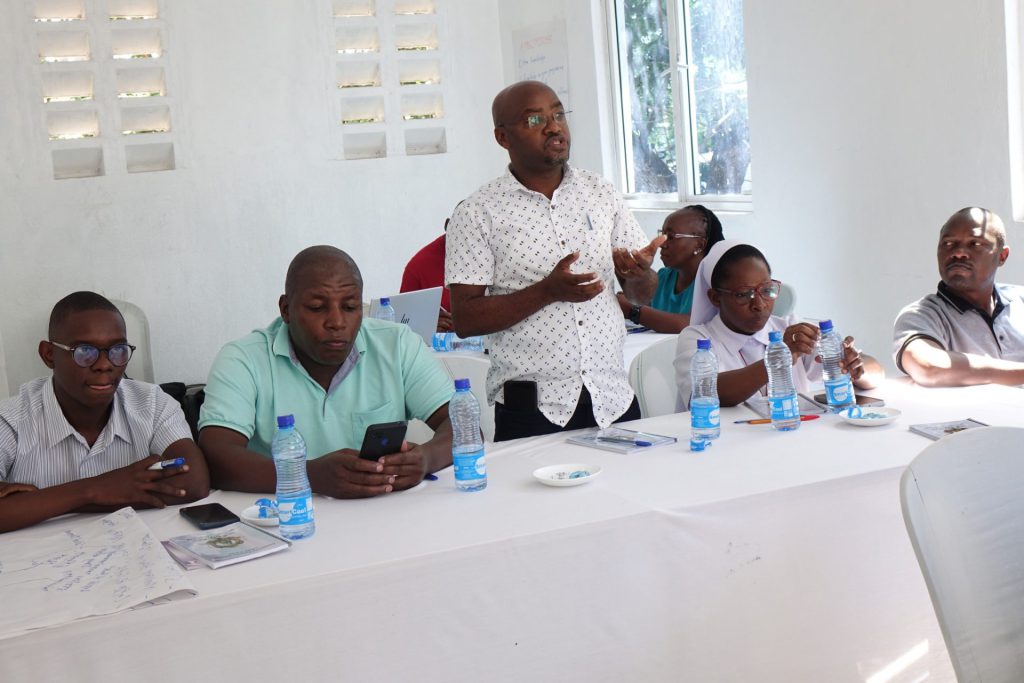
The 18 chaplains and catechists attending represented a wide range of correctional facilities, including Shimo la Tewa Maximum Security Prison, Manyani Maximum Security Prison, Shimo La Tewa Medium Prison, Shimo La Tewa Women Prison, Hindi Prison, Kwale Prison, Kilifi Prison, Malindi Prison, Hola Prison, Wundanyi Prison and Taveta Prison. The program’s goals included equipping these spiritual leaders to foster behavior change, help reintegrate inmates into society, and support their reconciliation with God, family, and those they may have wronged. By offering tools for self-reflection, resilience, and mentorship, the training aimed to enable chaplains and catechists to have a lasting impact on the lives of inmates and staff alike.
The AHAPPY ToT program incorporated a range of interactive sessions, facilitated by seasoned professionals. Leading the training were Fr. Ismael Matambura, SJ, Director of AJAN; Ms. Lillian Waweru, Principal Chaplain-Kenya Prisons; Fernando Nimbu, SJ, a regent at AJAN; and Mr. Dennis Owuoche, AJAN’s Communications Officer. The facilitators guided participants through a series of modules, each designed to enhance personal growth, community-building skills, and effective communication.
The training began with an introduction to the AHAPPY program’s mission, vision, and objectives, setting the tone for a week of transformative learning. The formal training sessions were initiated by Fr. Ismael Matambura SJ., Director of AJAN, who laid a solid foundation by introducing the pedagogy of the AHAPPY program. He provided an in-depth explanation of the program’s mission, vision, and objectives, which sparked an engaging discussion among the participants. This early interaction helped contextualize the broader purpose of the training and established a sense of shared mission. Fr. Matambura emphasized that the AHAPPY program aims not only to empower youth and vulnerable individuals but also to foster a holistic approach to personal and community transformation. He encouraged participants to promote social entrepreneurship and innovative solutions for self-reliance, underscoring how well-supported inmates can contribute positively to society upon release.
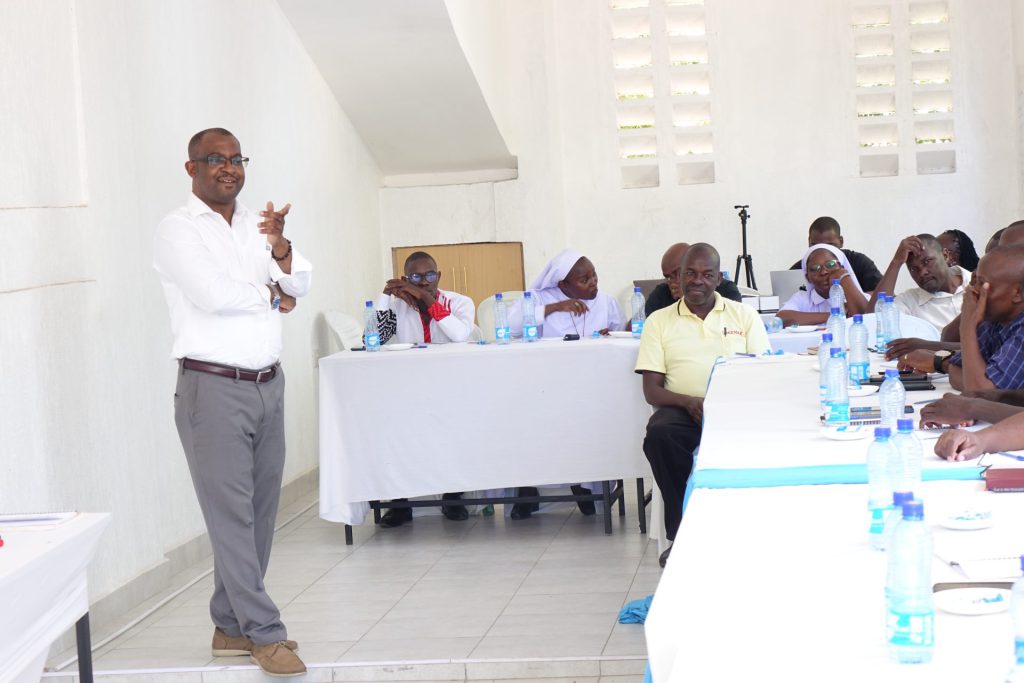
Modules for Personal and Professional Growth
Each day of the training covered a specific module, structured to foster both personal and professional growth:
Day One: Module A; Awakening to Myself
In this module, participants reflected on their identities, relationships, and personal growth. Themes like “I am a Beloved Creature of God” encouraged them to explore their spiritual identity and dignity. Discussions included the importance of being present in the moment, understanding oneself, and recognizing one’s strengths and weaknesses. Many participants found this focus on self-awareness particularly resonant, realizing that to help others, they first needed to understand their own abilities and limitations.
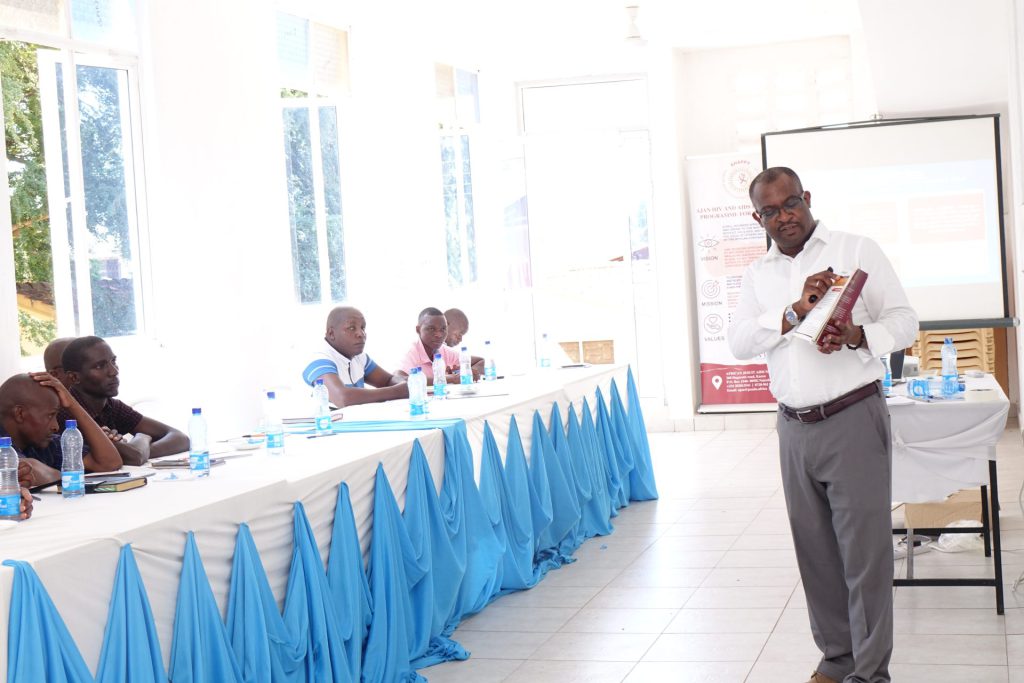
Fr. Ismael Matambura SJ., Director of AJAN during Day One session of the AHAPPY ToT, Coast Region.
Day Two: Module B; This World I live in
The second day encouraged participants to examine the world around them from a spiritual perspective, using the Holy Trinity as a lens. Ms. Waweru led sessions on HIV & AIDS, sexually transmitted infections (STIs), and the stigma surrounding them, which are critical issues within prison communities. Emphasizing open dialogue, she provided guidance on how chaplains and catechists can support individuals struggling with these health issues. Participants also discussed the role of parents and caregivers in addressing sexuality with youth, underscoring the importance of having honest conversations within families.
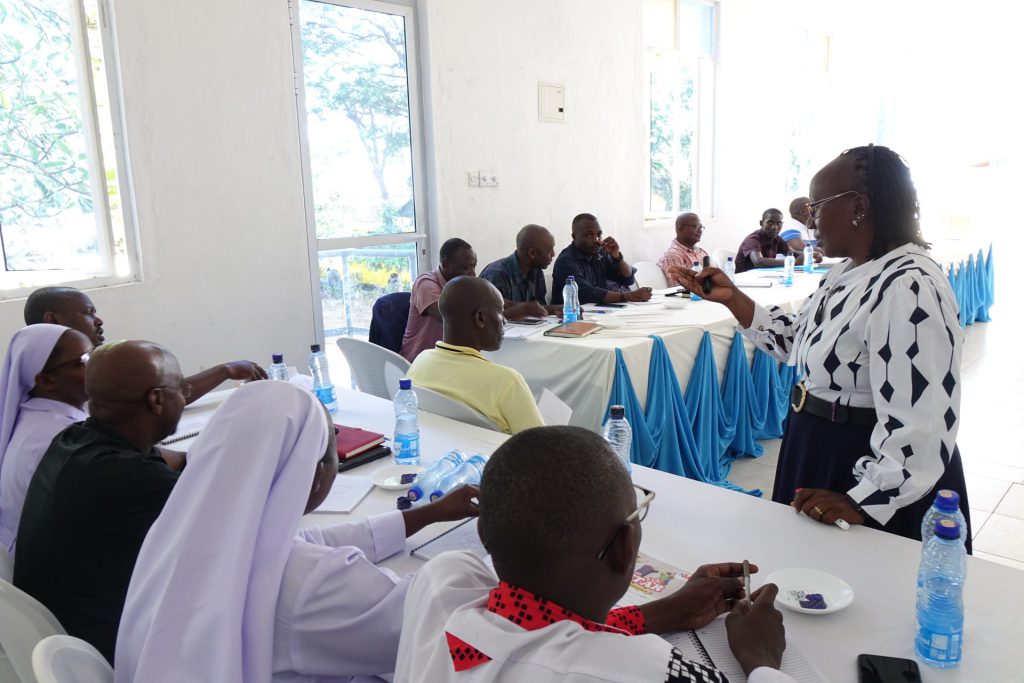
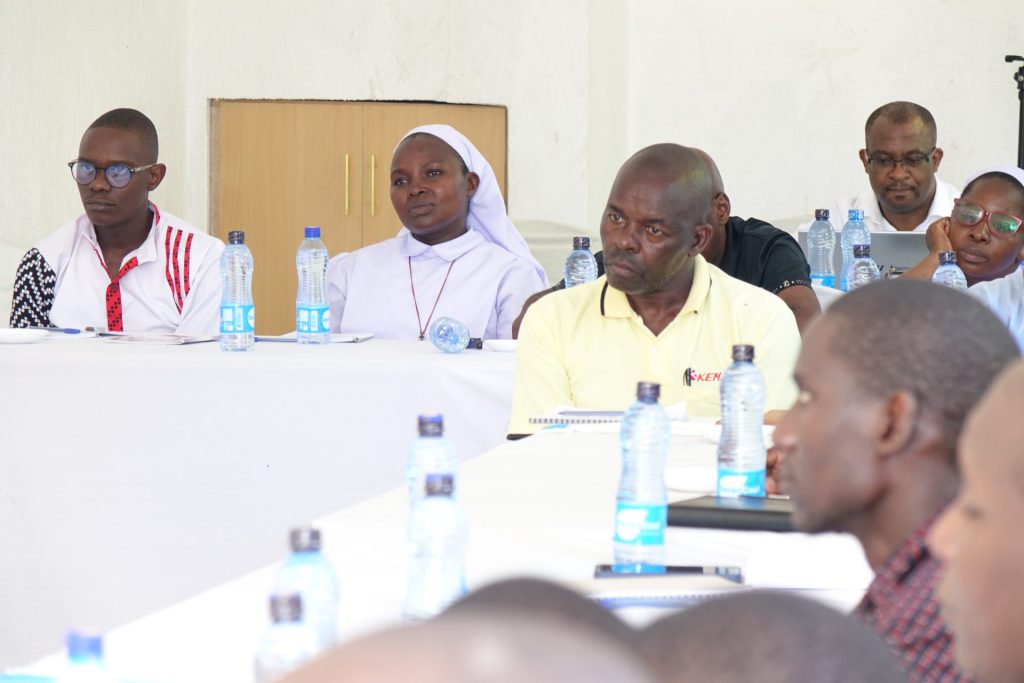
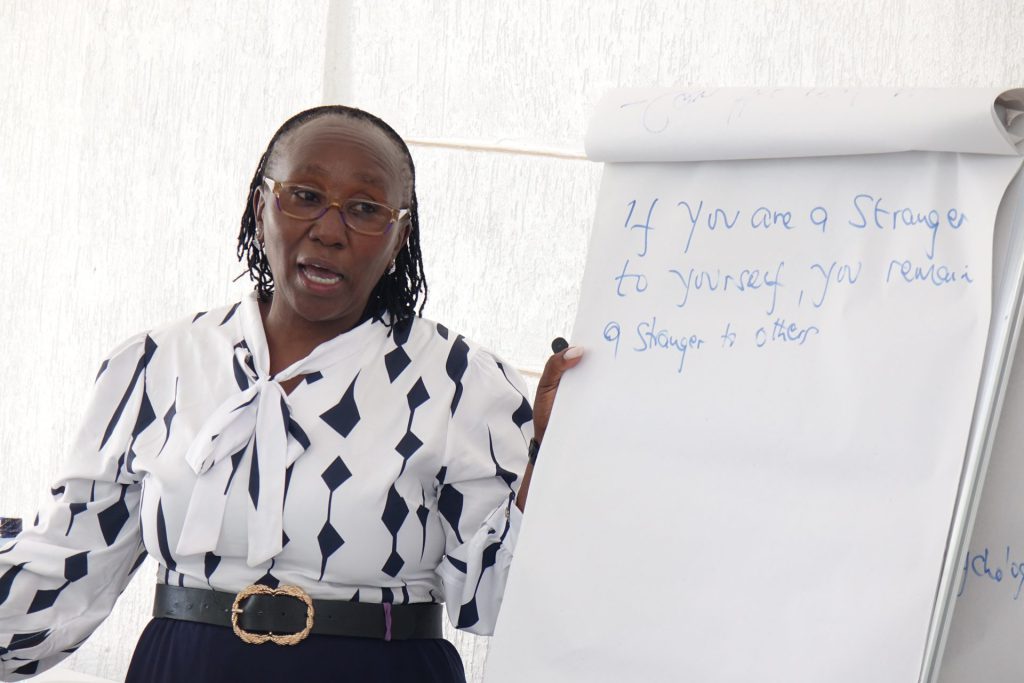
Ms. Lillian Waweru the facilitator during Day One session of the AHAPPY ToT, Coast Region.
Day Three: Module C; Facing a World with HIV and AIDS
Led by Fr. Matambura, this module focused on HIV’s impact on communities. Participants explored its effects on public health, the economy, and social structures, recognizing the pandemic’s far-reaching consequences, including orphanhood and reduced manpower. Despite these challenges, the availability of antiretroviral therapy (ART) has transformed HIV from a death sentence to a manageable condition. In another session, Ms. Waweru emphasized the importance of voluntary counseling and testing (VCT), encouraging chaplains and catechists to know their status and inspire others to do the same. Reflecting on the Good Samaritan parable, participants discussed how they can encourage abstinence and faithfulness to reduce HIV transmission within their communities.
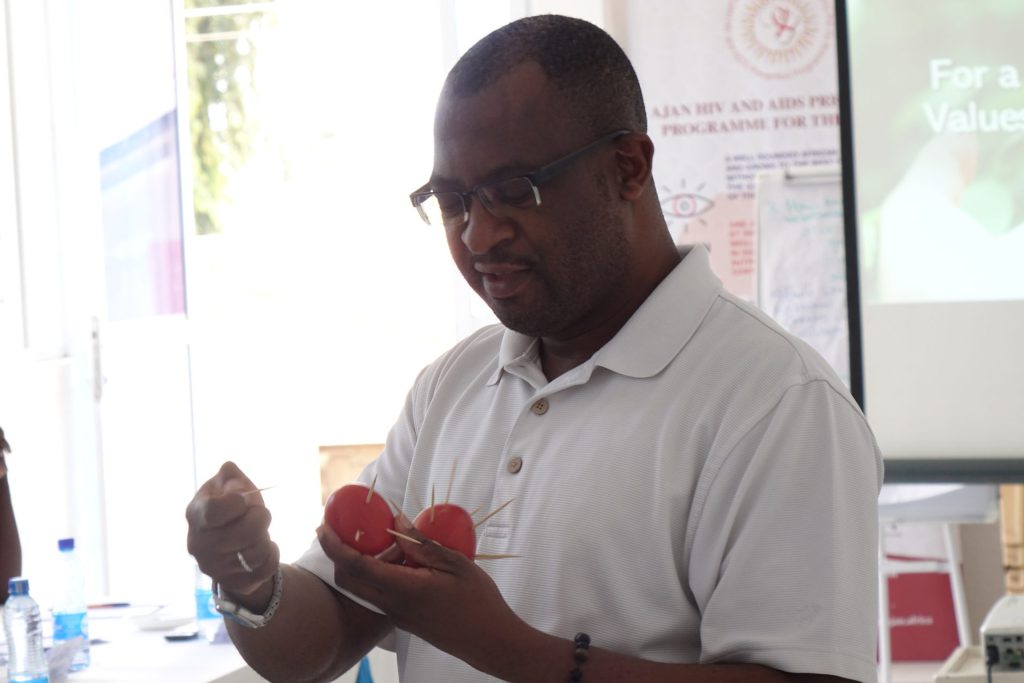
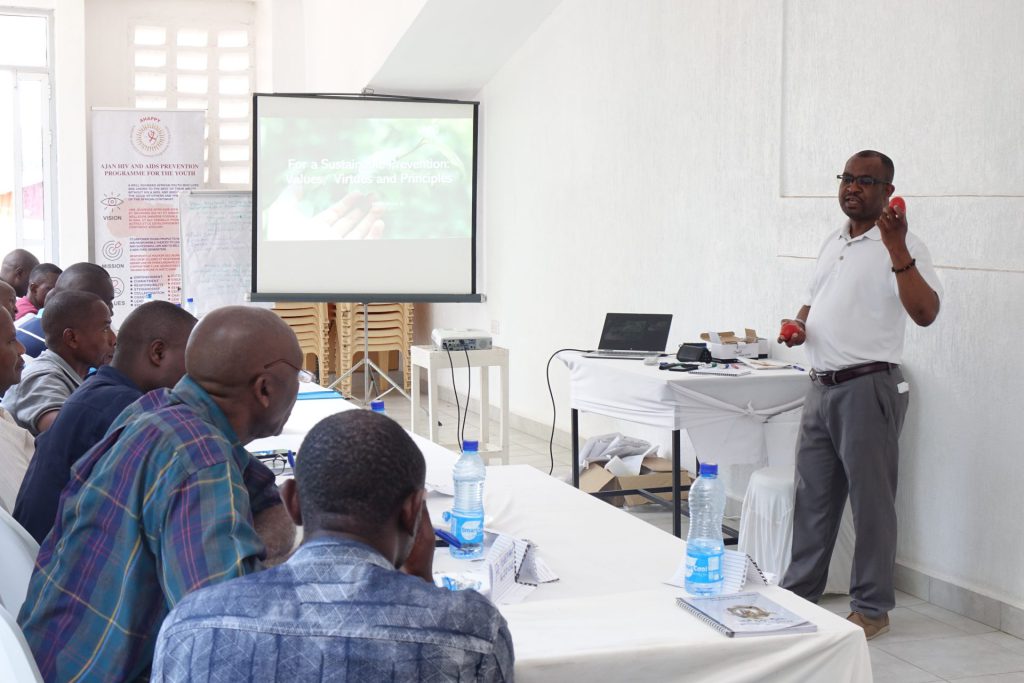
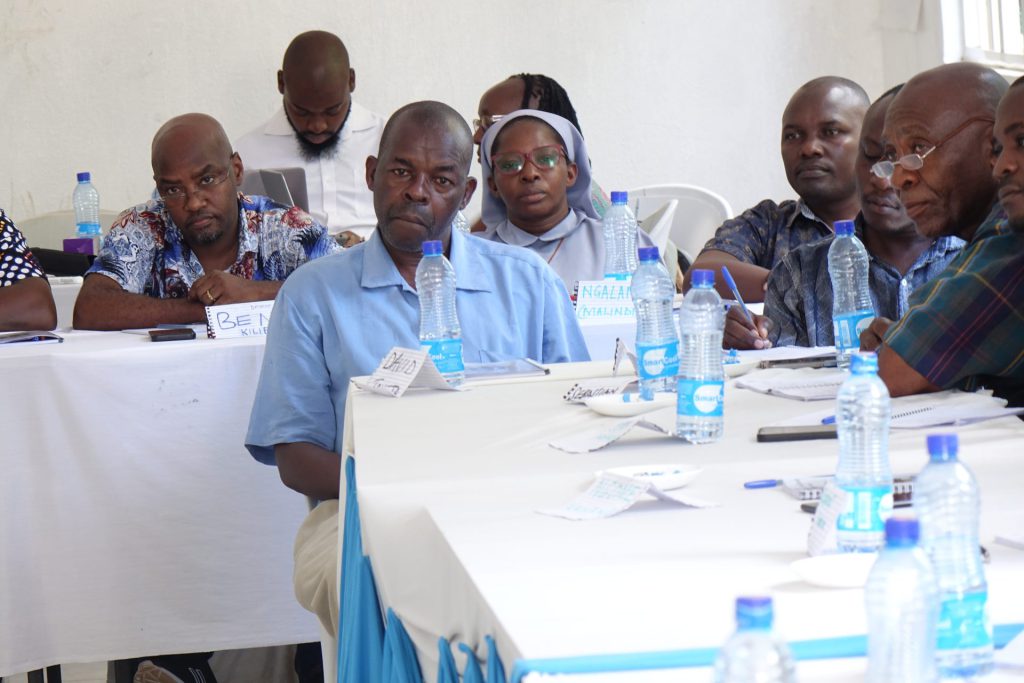
Day Four: Module D; Knowing to Grow Myself
On this day, the focus shifted to leadership, mentorship, and communication skills. Fr. Matambura discussed qualities of effective leaders and the values that make mentorship meaningful. Ms. Waweru highlighted the importance of having good mentors and being receptive mentees, while Mr. Owuoche emphasized effective communication skills. Participants practiced expressing their ideas clearly and learned how to interpret messages from others, a skill critical in their work with both inmates and colleagues. Enhanced communication would lead to more positive and constructive interactions.
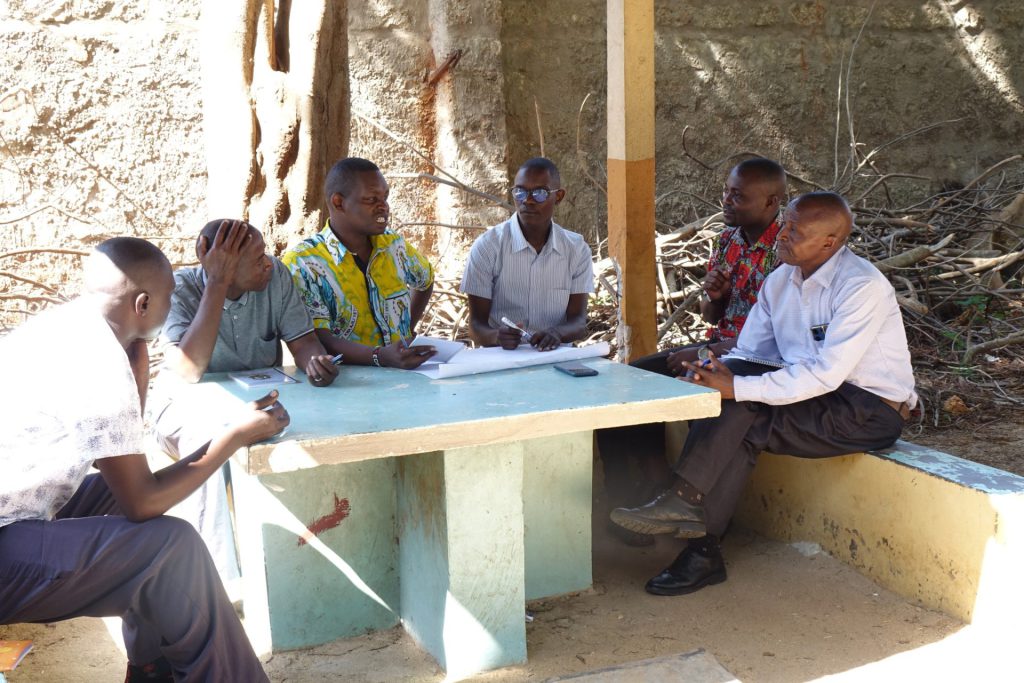
Day Five: Module E; Building a Foundation for Life
The final module focused on self-awareness and relationship-building, with Nimbu SJ leading participants in exercises that encouraged them to reflect on their own lives, the lives of others, and the challenges faced by their communities. Through group discussions and presentations, participants created strategies to improve their own competencies and develop actionable plans to support those in their care. This final day’s activities enabled participants to crystallize their learning into tangible, practical steps for application.
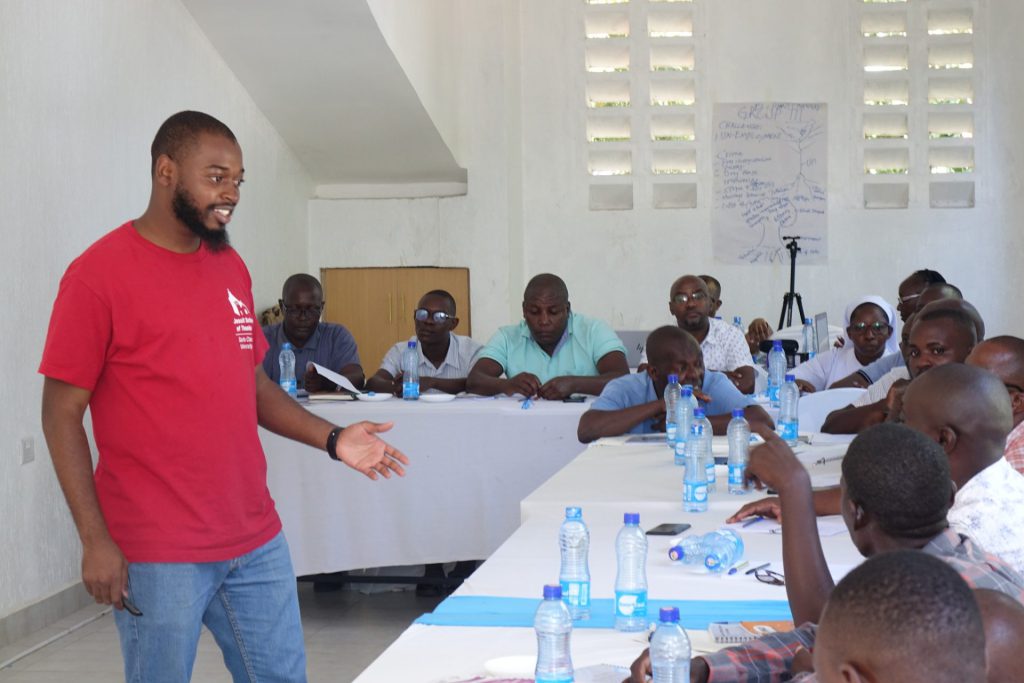
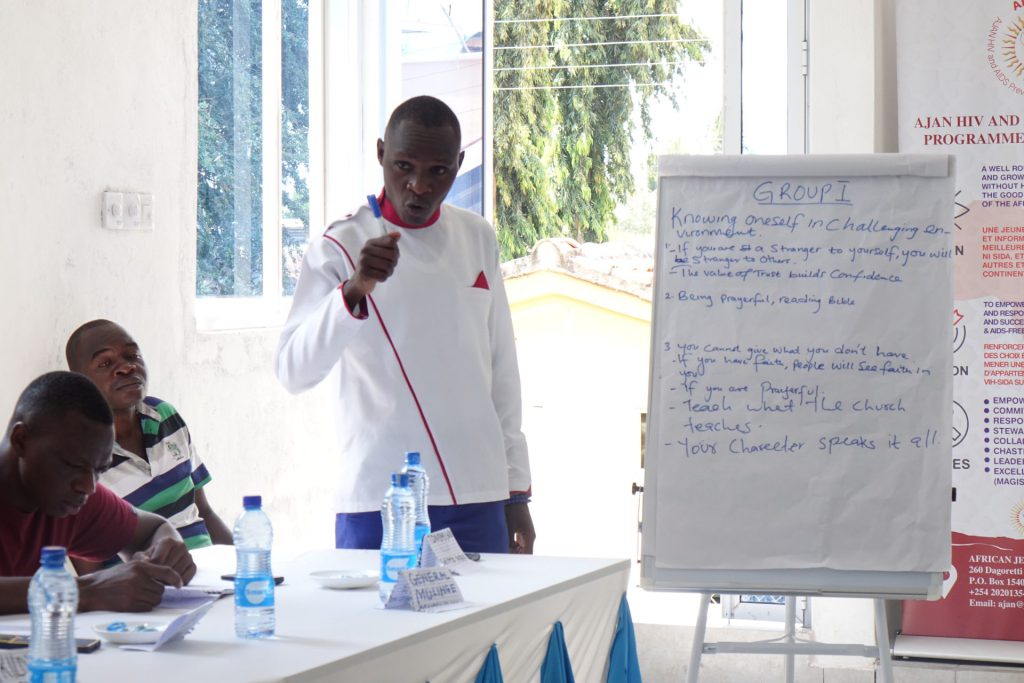
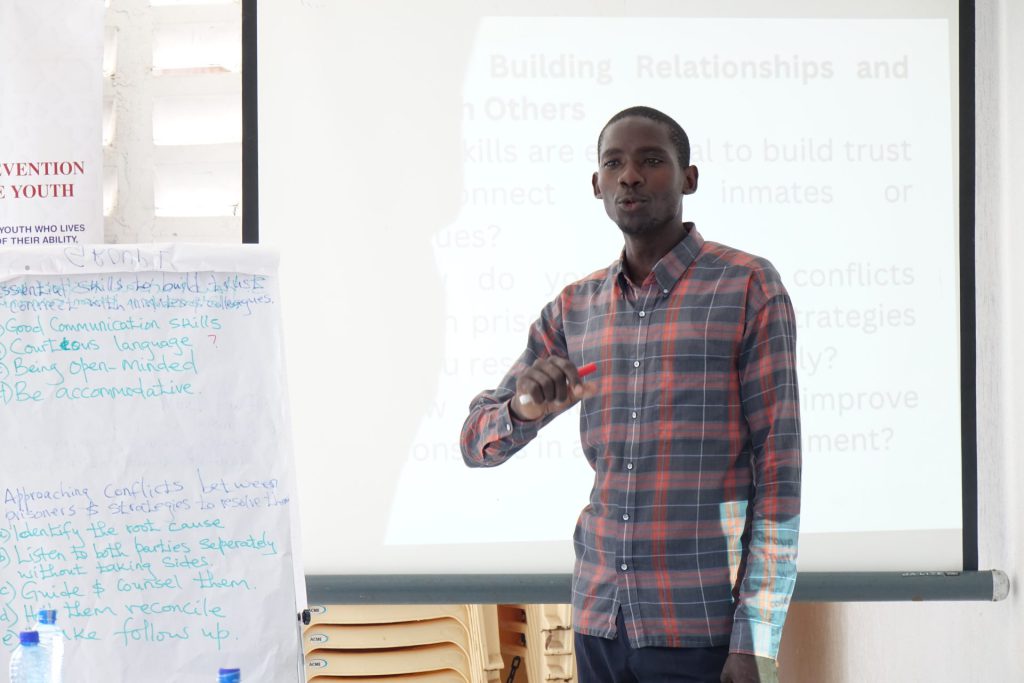
Positive Impacts and Participant Reflections
Throughout the training, participants voiced their appreciation for the opportunity to gain new perspectives and skills.
Fr. Josphat Njogu Mbui, Coast Prisons Regional Chaplain, expressed confidence that the training would benefit inmates and prison staff alike. He underscored the importance of ongoing sensitization seminars, “The five-day training was essential and will greatly benefit the inmates with whom we will share this knowledge. I expect that the Catechists who attended this training, as well as those who will benefit from this program, will have improved self-awareness and will not take the program for granted. Key activities to be implemented include the Catechists holding monthly sensitization seminars, incorporating insights from this training into our weekly programs for staff, inmates, and our Christian Life Communities groups.”
Some of the participants shared how the training personally impacted them.
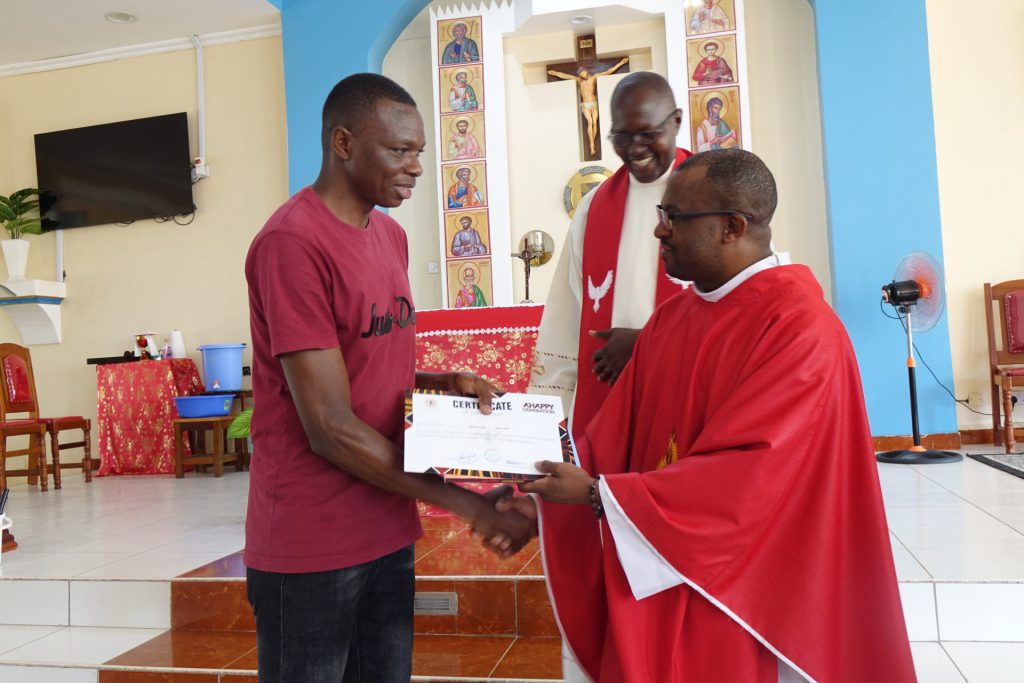
“We have been truly empowered with valuable knowledge on self-awareness and on topics that complement our roles as spiritual personnel in our workplaces and communities. The topic on self-awareness, particularly the question ‘Who am I?’ was an area that deeply resonated with me. I believe that to change others, I must first understand myself—my strengths, weaknesses, and abilities. With what I have learned, I intend to become a trainer, sharing this knowledge with various leaders to foster livelihoods and good morals in my community. I thank AJAN for the training, experience, and knowledge gained, and I encourage that similar training be provided to our leaders in various prison stations.”
Constable Bonface Mulinge,
Works at Manyani Maximum Security Prison.
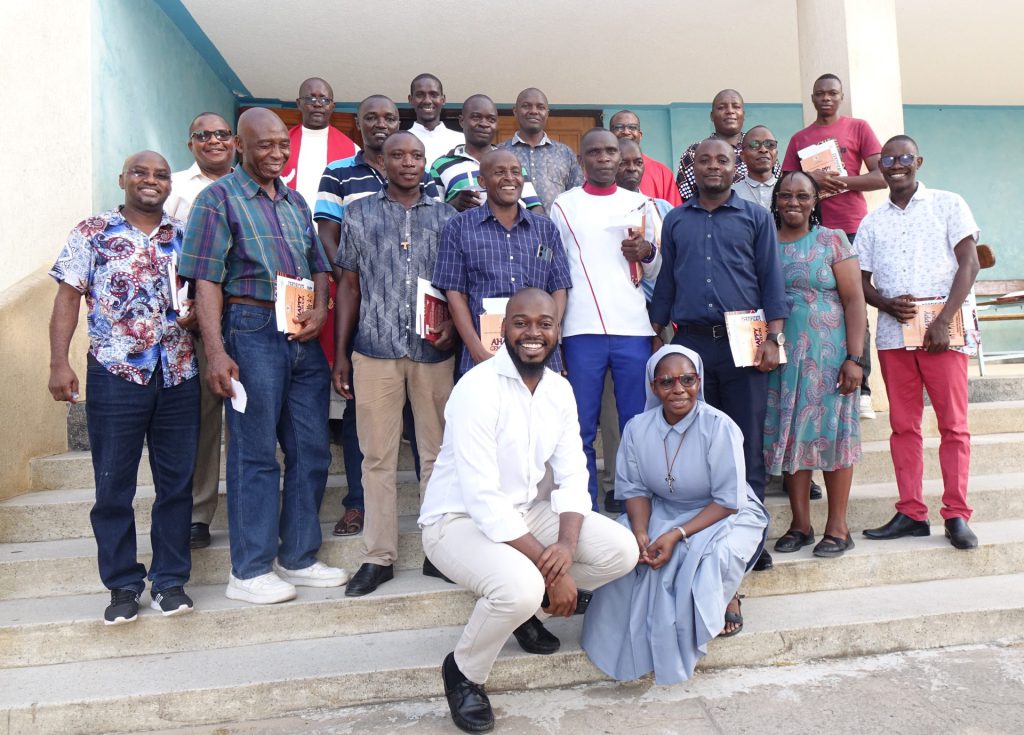
“I thank AJAN for the training we just completed, which addressed the effects of HIV and AIDS, particularly focusing on STIs. I have gained new knowledge that will greatly help me in supporting the women inmates in prison. Often, those infected with HIV are unable to disclose their status, and even those with STIs may hesitate to talk to the medics about their conditions. Through the skills I’ve acquired, I am now better equipped to help them open up so that we can address the challenges they face and, along with the medics, find ways to support one another.”
Sr. Elizabeth Kea,
Works with the Sister Congregation of St. Joseph of Mombasa and serves as a prison catechist at Wundanyi Prisons.
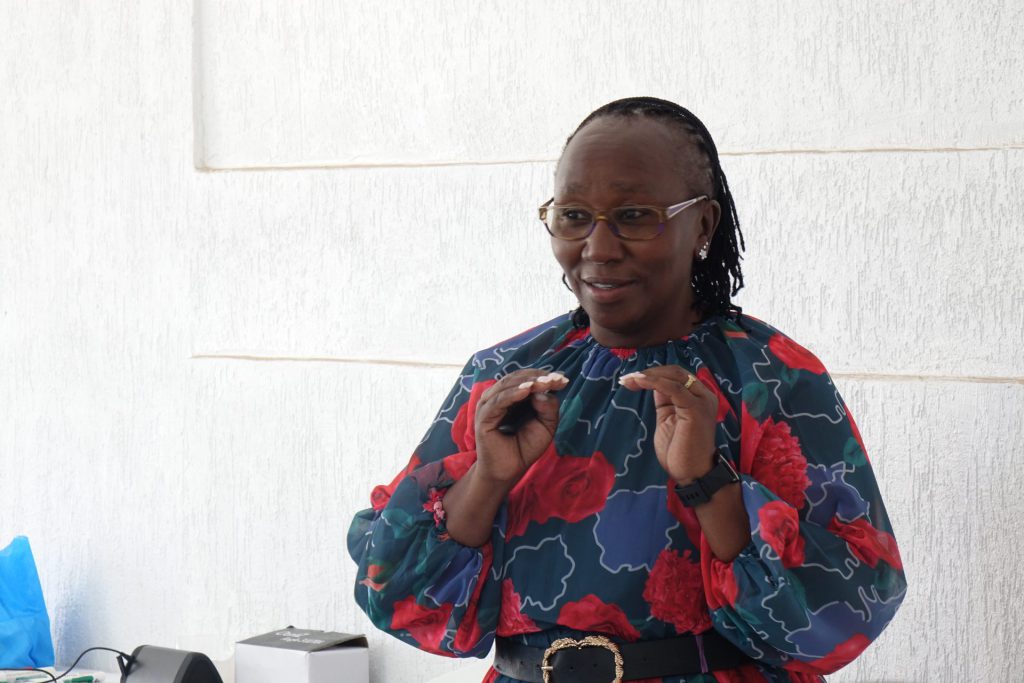
Ms. Lillian Waweru echoed the program’s significance, noting how it enhances rehabilitation efforts by empowering catechists to guide inmates and staff through complex emotional and moral challenges. Giving her views she said, ” “The AHAPPY program is an additional tool that the Catechists who attended this training can now use in their rehabilitation programs. The participants have received training on self-awareness, understanding their identity, and recognizing their role in prison chaplaincy. They serve as mentors not only to the prison staff but also to the inmates and even their families. This week was a time for self-reflection, allowing participants to renew their commitment to their roles. Having been commissioned, we expect the Catechists to apply the knowledge and skills they have acquired to reach out to others. AJAN is truly empowering our Chaplaincy to be more effective agents of rehabilitation and reintegration. With all the training AJAN has already provided to empower Prison Catechists in Nairobi, Naivasha, the South Rift Region, and now the Coast Region, we are focusing on how we can support the transformation of those in prison and assist the staff working in challenging environments.”
Ms. Waweru continued by discussing the importance of the Safeguarding component within the Prisons, explaining, “Chaplains and Catechists are bearers of faith and agents of change; they uphold moral standards within the church and society. Much of their work involves rehabilitating inmates, which centers on instilling good morals in individuals who have been imprisoned. This is especially important when we consider their role in rehabilitating inmates and reintegrating them back into society.”

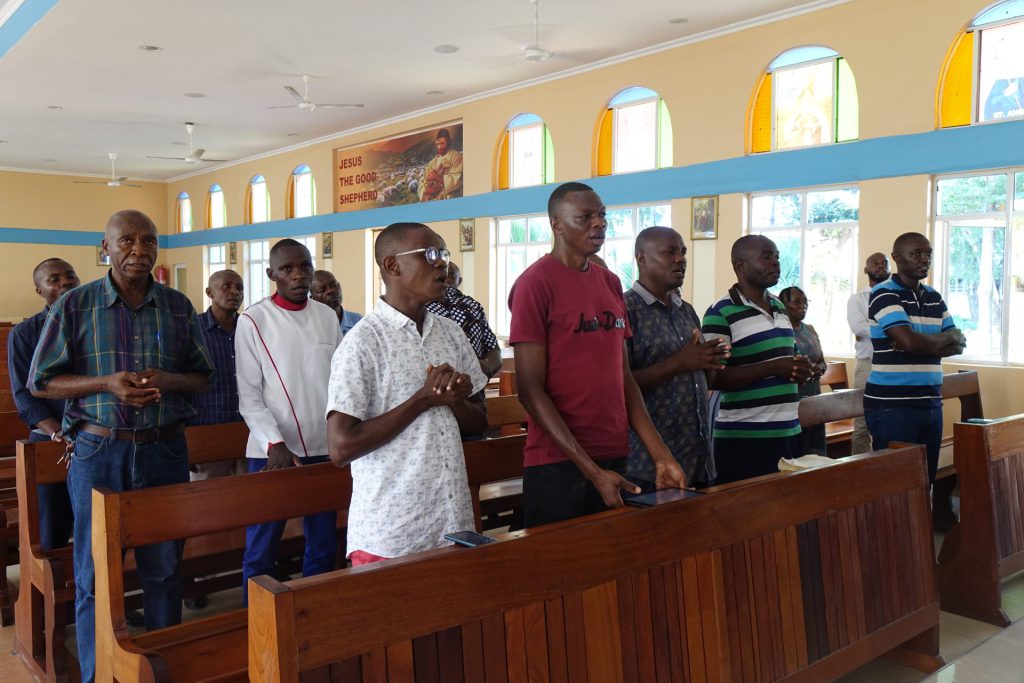
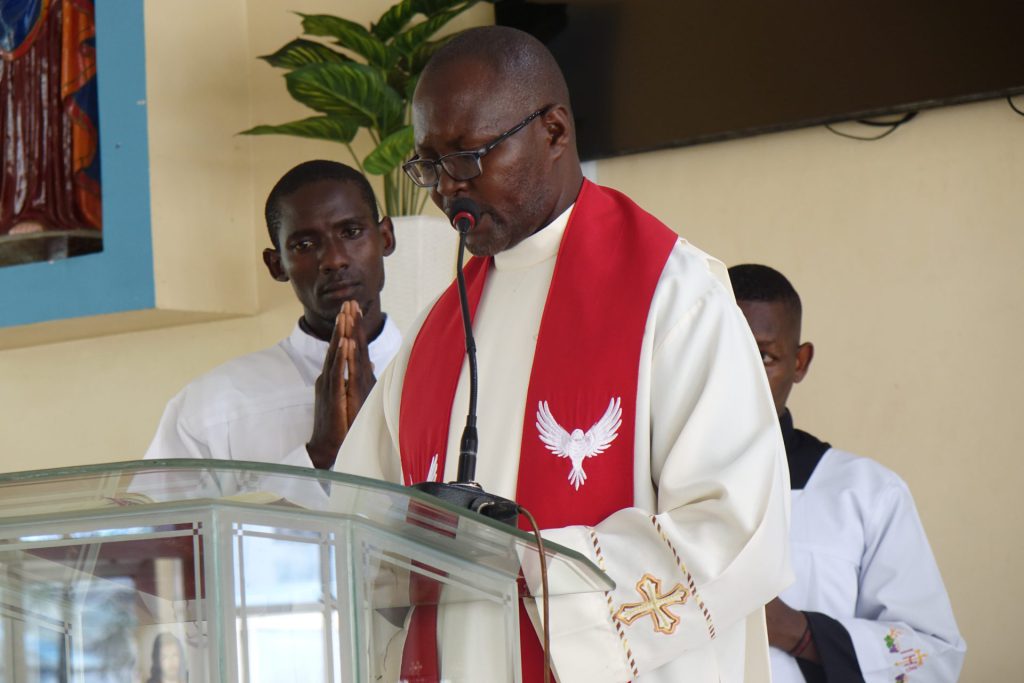
Commissioning Mass led by Fr. Ismael Matambura SJ.
In concluding the training, a commissioning Mass was held, led by Fr. Ismael Matambura, SJ. During the Mass, Fr. Josphat Njogu Mbui, the Coast Prisons Regional Chaplain, delivered a homily based on Luke 10:1-9. Reflecting on the passage, Fr. Mbui emphasized:,
“Jesus sent the seventy-two out in pairs to proclaim peace and healing. This is a calling for us as well—to bring hope and compassion, particularly to those who may feel forgotten or burdened. These are especially the inmates we accompany in prison, who are sometimes rejected by society. With the knowledge and skills we have gained, I urge all of you to organize seminars both within prison and in the wider community through small Christian communities so that you can share this knowledge with others. We are all messengers of peace and hope.”
Fr. Mbui expressed his gratitude to AJAN for organizing the AHAPPY training and challenged the catechists to apply their new knowledge and skills to uplift the lives of those they accompany in prisons and at home. Participants shared a renewed sense of purpose and unity, recognizing the importance of integrating the AHAPPY principles into their daily interactions with prisoners, people living with HIV (PLHIV), and other vulnerable groups in their care.
By, Mr. Dennis Owuoche,
AJAN Communications Officer.

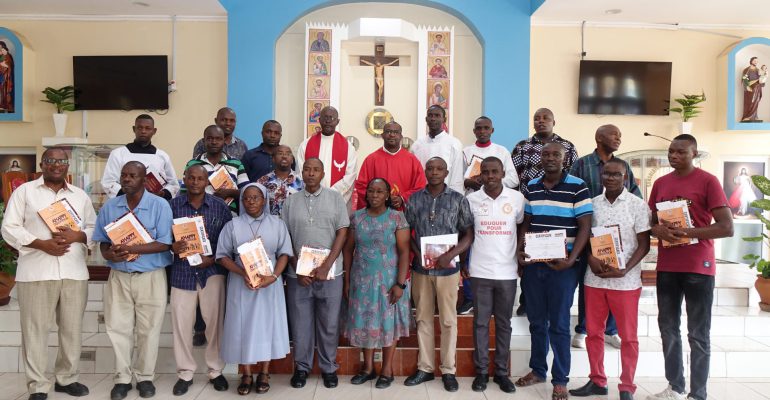
Comments are closed.